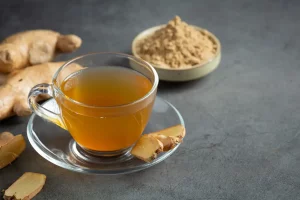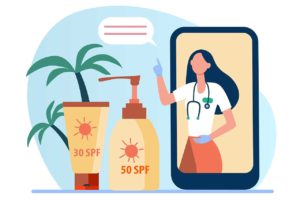Soothing, moisturizing, and stimulating, lube is also and above all the accomplice of painless penetration. Faced with a plethora of options, can we turn to a plant-based version? Which natural lubes to choose? What precautions? Naturopath Claire Déprez has the answers.
Why Choose A Natural Lube For Intimate Areas?
No doubt, lubes are excellent for combating vaginal dryness. However, most of those on the market contain harmful chemicals that are detrimental to health: endocrine disruptors, and allergenic substances… “In addition to reducing fertility, these, often silicone-based, would also be the cause of yeast infections, alteration of vaginal pH, cystitis, and even neurological disorders. Fortunately, less risky and natural solutions exist,” explains Claire Déprez.
Natural Lubes: How To Use Them
Vegetable Oils
Advantages: vegetable oils have a long-lasting effect and allow for a sensual massage in addition to penetration.
- Sea Buckthorn Oil: rich in omega-7, “it is strongly recommended in case of skin dryness, it regenerates mucous membranes, fights against skin dryness and especially vaginal dryness,” specifies the naturopath.
- Sweet Almond Oil: it provides “a creamy and softening side that nourishes the skin thanks to its emollient action.”
- Coconut Oil: it is also among the natural alternatives thanks to its antimicrobial, antifungal, and antibacterial action. It consists of almost 50% lauric acid, a nutrient that strengthens the immune system, making it a faithful ally in case of minor infections.
Risks: “With natural oils, be careful of allergic and bacterial reactions, as if coconut oil, for example, has antiviral properties, it can also have undesired effects in certain cases: modification of vaginal pH, development of yeast infections and vaginosis (a parasitic condition caused by a microscopic fungus (micromycete) of the yeast type),” warns Claire Déprez.
It is also not recommended to use vegetable oils with sex toys, vibrators, or latex condoms: “The oil makes them porous and therefore more vulnerable to tearing.” Risks of sexually transmitted infections or unwanted pregnancy could therefore occur.
Natural Gels
Advantages: Among natural lubes, the one made with aloe vera, a perennial plant, is the most recommended. “Its pH is close to that of our skin, which allows it to protect it. Rich in enzymes, aloe vera also moisturizes, nourishes, and regenerates the skin,” says Claire Déprez. In other words, it will effectively limit unpleasant sensations due to the repetitive back and forth of sexual intercourse.
Risks: Like vegetable oils, aloe vera gel is not compatible with latex condoms, as it can damage them. Its application should therefore be reserved for “stable” relationships, and its use should be moderate: “A hazelnut-sized amount is sufficient, otherwise the skin could have a “cardboard” effect that may not be pleasant,” advises Claire Déprez.
Here’s the best-selling lube on Amazon.
Shea Butter
Advantages: Shea butter is useful for irritated skin. It is both a skin regenerator and revitalizes tissues, restoring elasticity to the skin. It can therefore be used as a lube in intimate areas or for massage.
Risks: If it has soothing properties for the skin, it is because it contains karitene, a natural latex. So, be cautious if you are allergic to this component. Like natural oils and gels, its use is also not recommended with a condom as it weakens it.
Natural Lubes: How To Choose Them And Where To Buy Them?
“Never use a natural lube without checking its composition. While some packaging may tout its eco-friendliness and health benefits, harmful components could be hiding inside,” warns Claire Déprez. To help you, apps like Yuka, Clean Beauty, and QuelCosmetic, as well as the comparison offered by the Que Choisir website, can help you make better choices.
“For oils in particular, always choose organic products and preferably made in France. The “first cold press” label is also a guarantee of trust,” advises the naturopath.
Regarding aloe vera gel, make sure it contains juice with a purity of around 100% and possibly vegetable thickeners and natural preservatives.
Shea butter should be unrefined, white in color, odorless, and have a pasty or granular texture.
Where To Buy Natural Lubes?
While natural lubes can be found in supermarkets, it’s best to opt for organic stores that offer certified products with traceability guarantees. Pharmacies are another option, although their range may sometimes be limited. There are also some websites that specialize in natural lubes, such as Passage du Désir or La Compagnie des Sens. As for the price, you can expect to pay an average of 20 euros for a 100 ml bottle of high-quality vegetable oil, compared to 10 euros for 100 ml of shea butter or aloe vera gel.
Can You Make Homemade Lube? How?
Although there are recipes for homemade lube readily available on the internet, practitioner Claire Déprez believes that “nothing beats a high-quality oil that’s ready to use. Why try to modify something when it’s already simple and beneficial?” It’s important to remember that making any DIY product requires certain precautions, such as disinfecting utensils and following dosage instructions, to reduce the risk of infection or irritation. This is especially true when applying a homemade product to intimate and/or erogenous areas, so it’s better not to play around with it.
Dos And Don’ts For Lubes
Can You Use Vaseline On Your Intimate Parts?
“Vaseline is probably the most effective grease for protecting mucous membranes during anal or vaginal penetration. However, it’s not 100% natural as it’s derived from petroleum, which poses health risks,” reminds the naturopath. A study even shows that women who used Vaseline as lube in the previous month were twice as likely to contract vaginal infections (source 1). “In any case, it’s best to buy this product at a pharmacy to ensure you’re not buying a counterfeit. And don’t use this cream in combination with a latex condom.” The condom can become permeable and let sexually transmitted infections (STIs) and sperm through.”
Can Saliva Be Effective As A Natural Lube?
According to Claire Déprez, “Saliva is nothing more than water. It cannot provide the slippery and hydrating properties of a conventional lube. On the contrary, its texture can even dry out vaginal mucous membranes and make sexual intercourse more painful.”
Understanding The Causes Of Vaginal Dryness
While natural lubes can help alleviate vaginal dryness, their effect is only temporary. A gynecological consultation is therefore recommended to examine the real causes: menstrual cycle, pregnancy, medication, physiological state, and age… A lack of vaginal lubrication may occur, for example, during menopause due to a decrease in estrogen.
In addition to an essential medical consultation to determine the cause of vaginal dryness, it is possible to consult a naturopath. They can guide you towards natural solutions and a more specific lifestyle adapted to your genetics, history, environment, or diet. Claire Déprez explains, “Vaginal dryness may indicate a deficiency in fatty acids. In this case, it may be necessary to incorporate more foods rich in omega-3,6 and 9: sardines, mackerel, almonds…”
Intimate hygiene is another aspect to consider. Contrary to popular belief, shower gel should be avoided on private areas. “Water is sufficient to clean them. If a bar of soap is to be used in this area, choose one with a neutral pH to avoid disturbing the vaginal flora, which is an additional source of dryness. For the same reasons, intimate gels sold in supermarkets should also be avoided on a daily basis, due to certain irritating ingredients they contain.”
As you can see, the use of lube, even if it is natural, is not everything. Several conditions must be met, not forgetting the most important one: consent. “It is mandatory before and during sexual intercourse, do not neglect foreplay,” insists the practitioner. Finally, natural solutions are not really compatible with latex condoms, so it will be preferable to use water-based lubes during sexual intercourse.
Read More:
⇛ The Subtle Art Of Having Sex When Kids Are Home
⇛ 20 Things No One Ever Tells You About Being A Fat Girl
⇛ 10 Bizarre Sex Terms You Haven’t Heard Of













